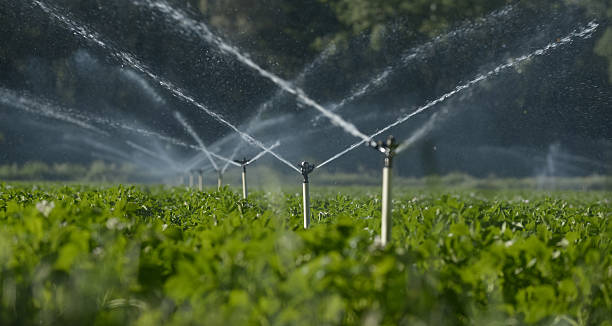Water is a precious resource, and efficient use is essential today. Smart irrigation controllers are designed to help maximise water efficiency and reduce waste. These controllers use advanced technology to provide precise watering schedules, which can save water and reduce water bills. This article will explore the benefits of smart controllers such as the rainbird irrigation controller and how they can help you maximise water efficiency.
What are Smart Irrigation Controllers?
Smart irrigation controllers are designed to manage your irrigation system automatically. They use advanced technology to monitor weather conditions, soil moisture levels, and other factors to determine when and how much to water your plants. These controllers can be programmed to provide precise watering schedules that are tailored to the needs of your specific plants and landscape. With an intelligent irrigation controller, you can save water, reduce water bills, and maintain a healthy and beautiful landscape.
Benefits of Smart Irrigation Controllers
Water Savings: Smart irrigation controllers can save significant water compared to traditional irrigation systems. By providing precise watering schedules, these controllers can reduce water waste. It ensures that your plants receive the right amount of water they need.
Reduced Water Bills: By reducing water consumption, smart irrigation controllers can help you save money on your water bills. Rising water prices can add up to significant savings over time.
Increased Plant Health: Smart irrigation controllers can help maintain healthy plants by providing the right amount of water at the right time. It can reduce the risk of overwatering or underwatering, which can cause stress and damage to your plants.
Environmental Benefits: By reducing water consumption, smart irrigation controllers can also help conserve water resources and reduce environmental strain. It is imperative in areas with water scarcity or drought conditions.
Convenience: Smart irrigation controllers are designed to be easy to use and can be programmed to provide automatic watering schedules. It means you can set it and forget it, and your plants will receive the water they need without any effort.
Flexibility: Smart irrigation controllers can be programmed to provide watering schedules that are tailored to the needs of your specific plants and landscape. It means you can customise your watering schedules to ensure each plant receives the right amount of water.
Remote Monitoring: Some smart irrigation controllers also offer remote monitoring, which allows you to monitor and control your irrigation system from anywhere. It is beneficial for those who travel frequently or have vacation homes.
Increased Property Value: A well-maintained landscape can increase the value of your property. Smart irrigation controllers can help you maintain a healthy and beautiful landscape, increasing your property value and curb appeal.
How Smart Irrigation Controllers Work?
Smart irrigation controllers use advanced technology to monitor and manage your irrigation system. They typically use weather, soil moisture, and other sensors to collect data on weather conditions, soil moisture levels, and other factors affecting water usage. Based on this data, the controller determines when and how much to water your plants.
Some smart irrigation controllers also use weather forecast data to adjust watering schedules in advance. For example, if rain is predicted, the controller may skip a watering cycle to avoid overwatering.
Smart irrigation controllers can also be programmed to provide customised watering schedules that are tailored to the needs of your specific plants and landscape. It allows you to provide the right amount of water to each plant. Which can improve plant health and reduce water waste.
Thus, an intelligent controller like a rainbird irrigation controller is essential for maximising water efficiency and reducing water waste. By providing precise watering schedules tailored to the needs of your specific plants and landscape. These controllers can save water, reduce water bills, and maintain a healthy and beautiful landscape.

